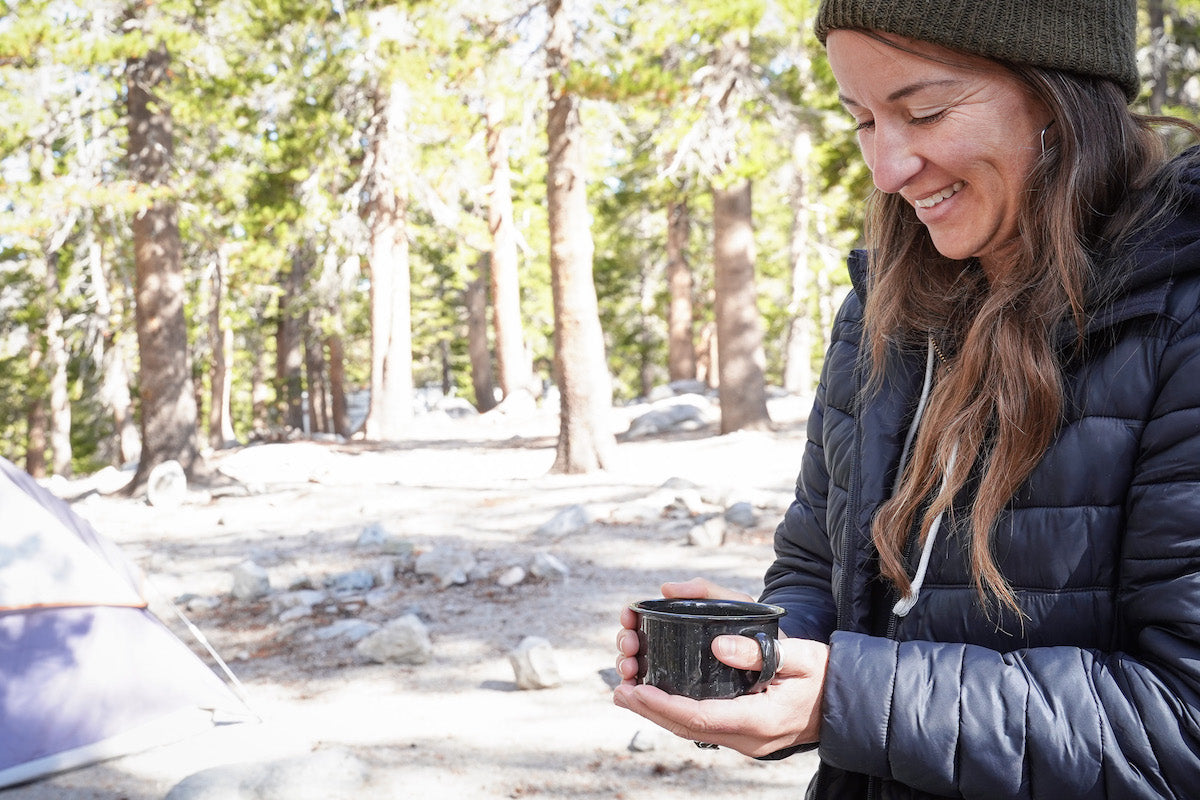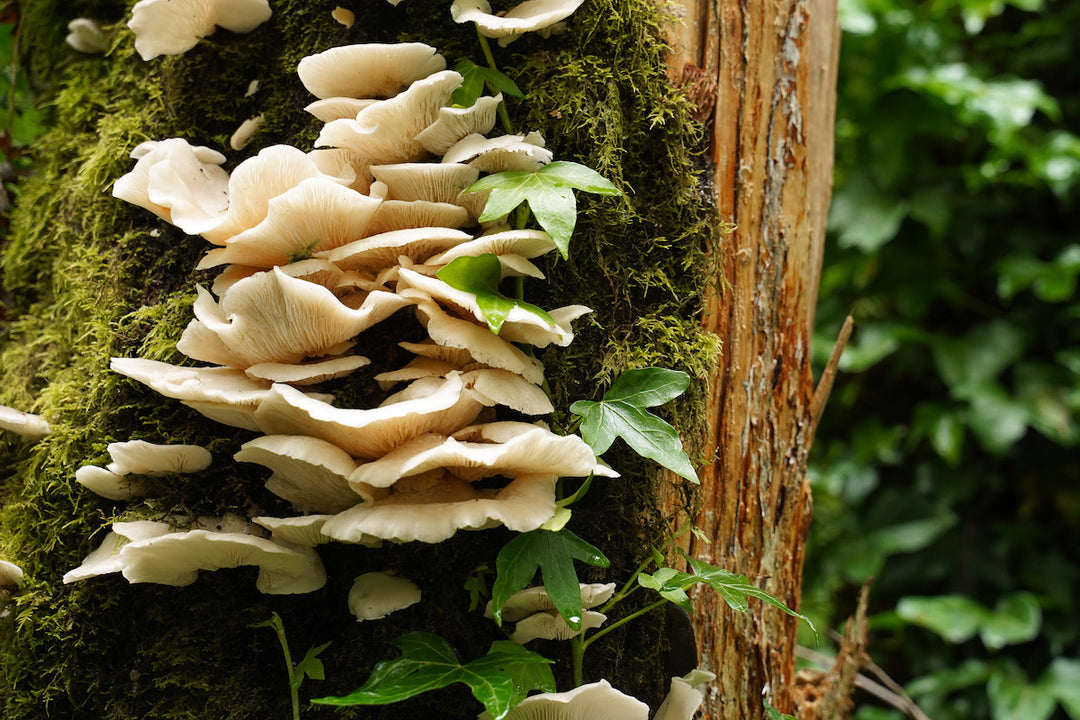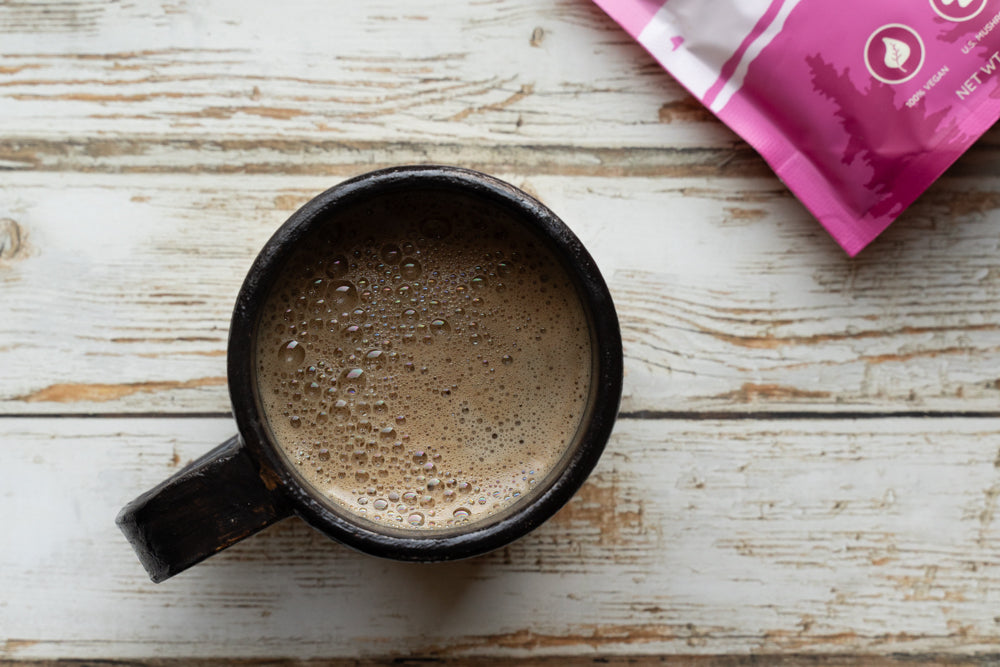Taming the Jitters: A Guide to Combating Caffeine Overload

Caffeine, the beloved stimulant found in our coffee and tea, and an extremely popular way to kickstart mornings around the world, can sometimes come with some negative side effects. Everyone responds differently to caffeine, so being mindful of how you feel after you drink your favorite caffeinated beverage is a good place to start identifying if you suffer from these adverse effects.
Whether you have a caffeine sensitivity or a tendency to drink too much coffee, we have some information that may help you cut back your intake, or at least take some simple measures to manage how your body responds to it.
We’re going to focus here primarily on how to fight those caffeine jitters– that jittery, anxious feeling that leaves you uneasy and restless. This common affliction is often described as “wired and tired”. You’re awake, but… not in a good way.
Lots of people experience this feeling daily but are too dependent on their morning cup of coffee to think about cutting back. They are simply going through the motions entrenched in habitual consumption. If you're one of these people, don't worry; we've got some ideas for you.
In this article, we'll explore some effective strategies to combat the caffeine jitters that may help you enjoy the energizing benefits of caffeine while mitigating or outright avoiding unwanted side effects.
Hydrate, Hydrate, Hydrate
First of all, drink plenty of water. Caffeine is a diuretic, meaning it can lead to increased urine production and potential dehydration. Counteract this by drinking plenty of water throughout the day. Better yet, add some electrolytes into your daily routine.
Now, just drinking more water won't necessarily keep you from experiencing the caffeine jitters, but it can greatly reduce the severity. Plus, you’ll just feel better all around.
Mindful Caffeine Consumption
Prevention is key. Instead of consuming a large amount of caffeine in one go, consider spreading your intake throughout the morning. Opt for smaller doses to maintain a steady energy level without experiencing sudden spikes and crashes.
This approach can help prevent the onset of jitteriness altogether. Try limiting your consumption to one serving in the morning and maybe a less caffeinated cup in the early afternoon. Or, get yourself an insulated mug so you can sip slowly throughout the morning without your beverage losing its heat.
Mindful consumption is all about assessing your relationship with caffeine. Take the time to notice how you feel immediately after drinking caffeine, an hour after, and 3-5 hours after. If you find you’re consistently experiencing jitters and anxiousness followed by lethargy, irritability, and trouble focusing, it’s probably time to work on developing a healthier relationship with caffeine.
Choose a Different Beverage

Maybe the beverage through which you consume your caffeine isn’t serving you. There are plenty of options out there with varying levels of caffeine. You could try half-caff, decaf, black tea, green tea, matcha, or hojicha, to name a few. With so many great choices, it doesn’t have to be devastating to mix up your routine with an alternative beverage. Plus, you might discover something new and delicious!
Pair with L-Theanine
L-Theanine, an amino acid found naturally in tea leaves, can help counterbalance the stimulating effects of caffeine. Consider taking an L-Theanine supplement with your coffee or making the switch to an L-Theanine-rich beverage like matcha or hojicha.
The combination of caffeine with this potent amino acid can enhance alertness and focus while minimizing the jittery sensations often associated with over-caffeination. Studies have shown that it can also reduce that tired feeling that often comes hours after consuming caffeine, and it can even promote sleep quality.
Add Milk
In addition to L-Theanine, there are other ways to balance your coffee experience. If you're someone who typically drinks your coffee black or on an empty stomach, adding cream or milk may help by evening out your blood sugar levels and providing you with a more even energy.
The introduction of fats may help to slow down your caffeine absorption. This can be achieved with whatever your favorite type of milk is, whether it’s a classic dairy option or the more popular plant-based milks of today. Milks that are higher in fat, like coconut milk, will likely be more advantageous than lighter options.
Bring in MCT Oil
Speaking of coconuts, MCT oil can be a huge benefit when added to your caffeine routine. Medium Chain Triglycerides (MCT) are a form of saturated fat, derived from coconuts, that are small and easy for your body to metabolize.
MCT Oil can help energize you so that you don’t feel like you need to keep consuming caffeine. These molecules don't need to be broken down by your liver, so they become an immediate and sustained source of energy, especially for the brain. Combining high-quality fats like MCT oil with caffeine is thought to prevent insulin spikes and blood sugar crashes.
Note: This is our favorite way to help reduce coffee jitters and fuel the brain, and it’s why we add MCT oil to all of our instant lattes!
Choose Quality Brews
The quality of your caffeine source can make a difference. Opt for high-quality coffee beans or tea leaves. Cheap or poorly brewed coffee can contain higher levels of impurities and compounds that may contribute to jitters, so organic is best here. Choose a reputable brand and consider experimenting with different brewing methods to find what suits you best.
Eat before you drink caffeine
Consuming caffeine, especially coffee, on an empty stomach can intensify its effects and contribute to jitters. Try to eat a healthy meal before or immediately after your caffeine intake. Include protein, healthy fats, and complex carbohydrates to provide a steady release of energy and help prevent sudden spikes. Eating before coffee consumption can also help balance the gut pH, keeping you from getting an upset stomach.
Exercise to Release Excess Energy
Physical activity is a fantastic way to burn off excess energy and reduce overall anxiety, including what you experience with the caffeine jitters. Consider taking a short walk, doing some light stretching, or engaging in a quick workout when you're feeling anxious. Exercise not only helps dissipate the jittery feeling, but also boosts your mood and overall well-being.
Practice Deep Breathing or Meditation
The caffeine jitters can be exacerbated by heightened stress and anxiety. If you find yourself in this state, try to engage in deep breathing exercises or meditation to calm down your nervous system. Focus on slow, deep breaths to promote relaxation and alleviate any jittery sensations.
There is a lot of information out there on this topic, and there is a surprising variety of breathwork and meditation techniques, so try a few and find what works best for you.
Combating caffeine jitters is all about finding balance in your caffeine routine and adopting general healthy habits. By staying hydrated, consuming caffeine mindfully, choosing quality brews, utilizing healthy additives, and incorporating lifestyle practices like exercise and relaxation techniques, you can enjoy the benefits of caffeine without the unwanted side effects.
Experiment with these strategies to discover what works best for you and strive to make your daily caffeine routine a healthier experience.
Unfortunately for some people, abstinence may be the right answer, depending on your sensitivity to caffeine or other health factors. Eliminating caffeine or looking for beverages with very small doses might be the right call. For everyone else, we believe it’s important to establish a healthy routine with our morning fuel.


Leave a comment